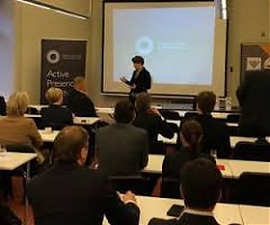Education and Science, Investments, Latvia
International Internet Magazine. Baltic States news & analytics
Saturday, 23.08.2025, 04:03
FICIL proposes to start a new stage of the modernization of the Latvian education system
 Print version
Print version |
|---|
In the past years FICIL has indicated flaws in the situation within the educational sector in Latvia - the mismatch between educational infrastructure and demand, the emigration of talent, the atomization of resources, the lack of advancement in the quality of higher education and research. The government has initiated reforms in most of the areas highlighted in previous years and FICIL praises its efforts and outcomes in actions undertaken since the last high-level meeting, such as completion of the salary model reform and steps towards the consolidation of the schools’ network, the paper says.
The most fundamental concern for the investors remains the same – the availability of labor in Latvia, consequently also long-term goals have not changed, including leverage the quality level from good to excellent across the system; focus in the introduction of competency-based education in all levels; and equal opportunities in the context of the optimization of school network and concentration of resources.
FICIL explained that future demographics of Latvia show that the declining of the number of inhabitants will continue, which will affect further the education system (less interested students and teaching staff). FICIL sees a close connection between internationalization of the higher education and international competitiveness. The facilitation of the openness of the higher education for the international society and the exchange of know-how should be set as priority of the higher education development.
The quality of the higher education is tightly linked to the qualification and scientific activities of the academic personnel, which, due to the lack of appropriate funding system, keeps decreasing. In this sense, the basis for the election of higher education institutions’ staff should be completely independent of the command of Latvian language.
FICIL said in the statements that the Latvian higher education system is too fragmented, which can be seen in the progressive disproportion each year between fewer students and greater number of universities and study programs. The higher educational institutions’ fragmentation leads to fragmentation of resources, undeveloped resource sharing and duplicated study programs with unclearly defined study objectives and results.
The accreditation system of higher education programs is not perceived currently as a guarantee of quality by prospective students and employers. Higher education institutions are providing professional and academic programs with similar governance and accreditation procedures. Academic and professional education requires different style and structures for managing and assuring quality. There is a disproportion between the supply of study programs in universities/colleges and the demand of labor market.
FICIL is concerned that students in high schools are not motivated to finish their studies and get the degree further. About 30 percent of high school graduates do not continue studies in the universities, but the demand for low qualified workforce is decreasing. There is a mismatch between employers’ needs and expectations from employees and the content in schools and universities. Content, which is provided by schools and universities, is not changing and moving towards competence based content as fast as 21st century employers and companies would expect. High-potential young researchers are leaving the country looking for better research opportunities and standards of living. This situation is partly produced by the limited resources allocated to research (below EU level) and the fragmentation and excessive bureaucracy in the distribution of these resources.
FICIL recommends internationalization of higher education and science sector, considering the long-term strategy of the country. In this sense, more special funding programs could be foreseen for attraction of outstanding international students and faculty. Also, it should be necessary to collect and distribute information, which would allow the creation of objective, comprehensive and precise rankings of Latvian schools and higher educational institutions. Latvia should also review of the language requirements and election process for elected positions in higher educational institutions in order to facilitate their internationalization.
FICIL suggests to reinforce the role of Advisory Boards in higher educational institutions in order to facilitate accountability and provide strategic relevance, and undertake an action plan for reforming of higher educational institutions and the so-called Higher Educational Institutions Law considering the findings of the current audit of the State Audit Office and the need to make good use of the last available program of EU structural funds
It would also be necessary to motivate higher educational institutions to develop more flexible management procedures for professional programs’ design, execution and upgrade in order to facilitate the interaction with the labor market. Universities should be requested to facilitate the creation of ecosystems of exchange and cooperation between science and business departments.
FICIL calls to revisit accreditation/licensing and allocation/amount of financial support systems with the objectives of encouraging inter-institutional cooperation, properly financing the study programs, enhancing cooperation with business and encouraging academic excellence. An option would be strict/lengthy accreditation procedures for academic state-funded programs and more flexible/fast-track licensing procedures for professional programs. In preparation towards the launching of the new accreditation process, it would be necessary to undertake an objective analysis of the future trends in the labor market in cooperation with business representatives, and encourage cooperation between basic and middle education institutions and higher educational institutions in order to support teachers’ integration of new technologies.








 «The Baltic Course» Is Sold and Stays in Business!
«The Baltic Course» Is Sold and Stays in Business!

